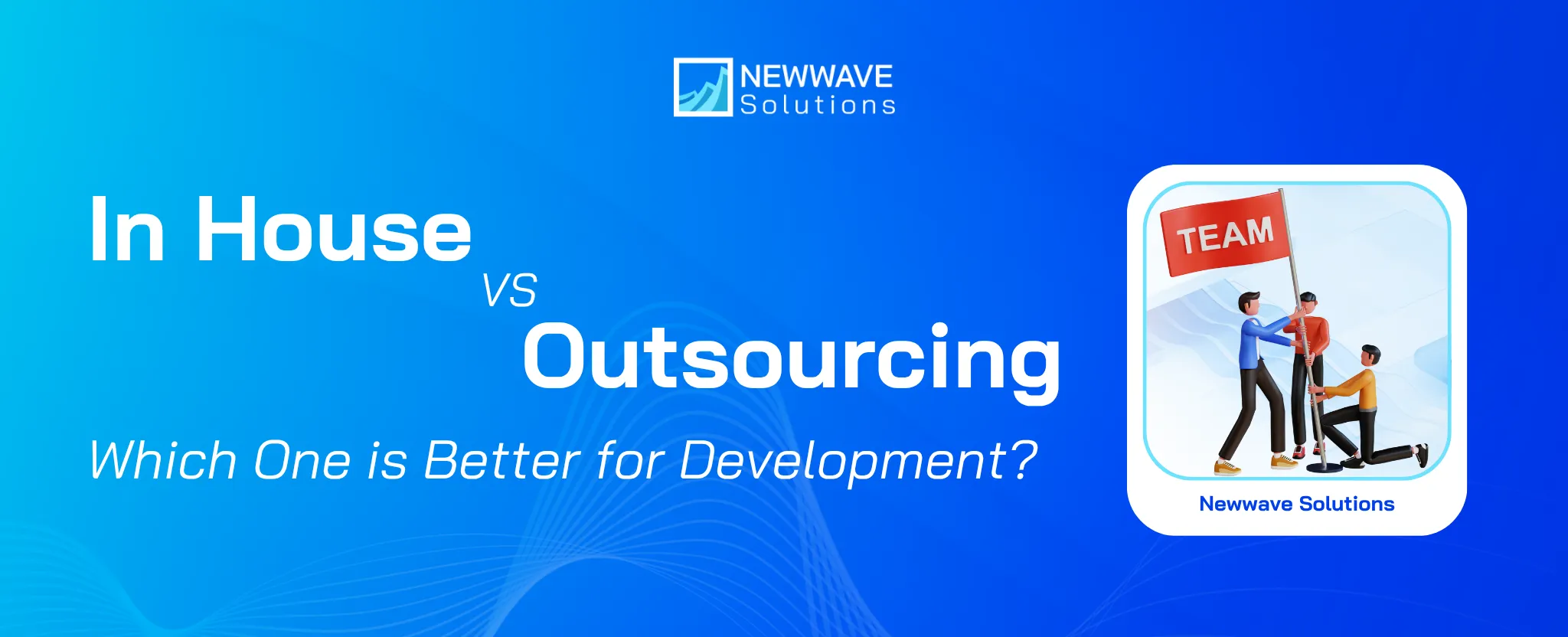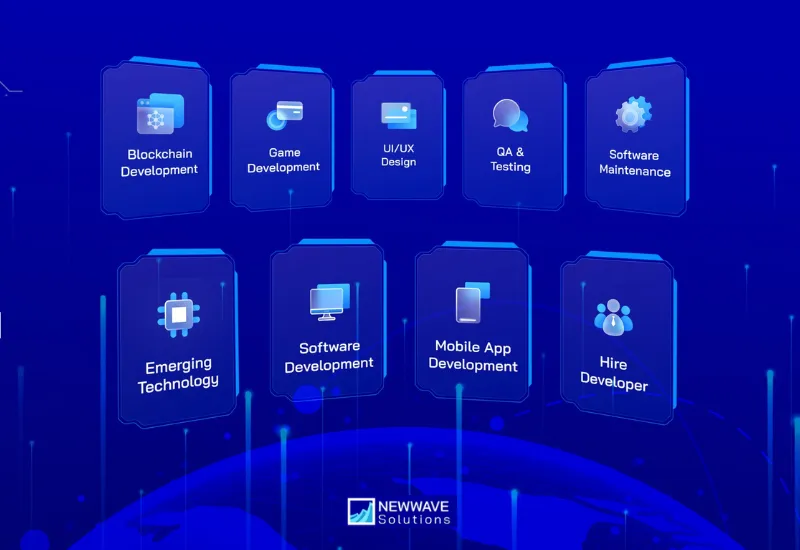In House Vs Outsourcing: Which Suits Your Project?

In house vs Outsourcing, which one suits you best? The right answer depends on where capability should live, how fast you must move, and how you balance control with cost. This guide explains both models in practical terms, compares them across the dimensions that matter, and ends with a clear decision playbook you can apply today.
Get to know each others
In house means tasks are done by a company’s employees, while Outsourcing delegates tasks to external experts, cutting costs while gaining specialized knowledge and efficiency. In house vs outsourcing refers to two different methods businesses use to complete tasks and projects:
- In-house is prevalent in almost every industry for core business functions, such as a retail company managing its own marketing team or a manufacturer employing its own quality control staff.
- Outsourcing is common for specialized or non-core functions. Examples include a small business using an external accounting firm, a company hiring a digital marketing agency, or a startup engaging a third-party logistics provider.
When it comes to technology, this fundamental choice crystallizes into two distinct paths for building software. Let’s explore each one:
In house software development
In house software development means building your software with a team you directly employ. These are your own full-time developers, designers, QA engineers, and project managers who work within your company’s structure. They are integrated into your culture, report to your managers, and work exclusively on your projects. This model is ideal for long-lived platforms that differentiate your business.
Pros:
- Greater Control: You oversee the entire development process, enabling quick adjustments and alignment with your vision.
- Deeper Knowledge: An in-house team understands your processes and goals, ensuring better software integration.
- Stronger Collaboration: Being in the same organization enhances communication and speeds up problem-solving.
- Enhanced Security: In-house development minimizes risks related to sensitive data and intellectual property.
- Long-Term Asset: You build valuable internal capabilities that become a core asset of your company.
Cons:
- Higher Costs: Ongoing expenses for salaries, benefits, office space, and software can be a major barrier to in-house development.
- Limited Talent: Recruiting skilled tech professionals is competitive and time-consuming.
- Scalability Challenges: Adjusting team size is slow and inflexible, complicating both hiring and layoffs.
- Knowledge Silos: Departing key developers can disrupt projects due to lost specialized knowledge.
- Training Costs: Continuous investment in training is needed to keep skills up to date in a rapidly evolving tech landscape.
Outsourcing software development
Outsourcing software development involves hiring an external company or team to build your software. Instead of managing developers yourself, you partner with a specialized firm that provides the necessary expertise and manpower for your project. This model is a cornerstone of modern IT outsourcing services, allowing businesses to tap into global talent and specialized skills on demand. This model is ideal for speed, elasticity, or specialized skills you don’t have in house.
Pros:
- Significant Savings: Outsourcing reduces overhead costs and allows access to lower labor costs, especially offshore.
- Vast Talent Pool: You can tap into a global network of specialized experts beyond local hiring constraints.
- Faster Time to Market: Established outsourcing teams can start development immediately, speeding up project timelines.
- Scalability and Flexibility: Easily adjust team size based on project needs without hiring or firing complexities.
- Focus on Core Business: Outsourcing lets your internal team concentrate on strategic activities rather than technical details.
Cons:
- Reduced Control: You lose some daily oversight, relying on the outsourcing partner’s management practices.
- Communication Challenges: Time zone, language, and cultural differences can hinder alignment, requiring strong communication protocols.
- Security Concerns: Sharing proprietary ideas and code poses risks; a robust contract with confidentiality clauses is essential.
- Quality Variability: Output quality depends on the partner’s competence, making thorough vetting critical to avoid issues.
- Cultural Misalignment: External teams may struggle to grasp your company culture, potentially affecting product fit and user experience.
In house vs outsourcing development, what’s the different?
The practical difference is where capability lives and how you buy it. In house builds capability as an asset; outsourcing rents capability as a service. In house optimizes for control, continuity, and IP depth. Outsourcing optimizes for speed to talent, flexibility, and predictable spend. Your constraints—time, budget, risk, and skill gaps—determine which advantages you value most.
Here is a detailed breakdown of the critical aspects to consider when comparing in house vs outsource strategies:
1. Cost & Finance
In-House involves high, fixed, and ongoing costs. You are responsible for the full employee lifecycle: recruitment costs, salaries, benefits, payroll taxes, office space, equipment, and ongoing training. While this can be predictable, the initial and long-term financial commitment is substantial. It’s often more justifiable for long-term, core projects.
Outsourcing is characterized by variable and often lower upfront costs. You typically pay a fixed project fee or a monthly rate based on team size. This converts capital expenditure into operational expenditure, freeing up cash flow. The advantages of IT outsourcing from a financial perspective include accessing competitive rates from the best offshore software development countries, like Vietnam, without the burden of long-term financial commitments.
2. Control & Management
In-House: You retain absolute control over the project. You can dictate the development methodology, make instant priority changes, and have full visibility into the daily workflow. Your team is an extension of your management structure, allowing for direct and immediate oversight.
Outsourcing: Control is shared and managed through contracts and service level agreements (SLAs). You rely on the vendor’s project manager for updates and deliverables. While you set the vision and requirements, the “how” and “when” of the daily work are largely in the hands of the external team. This requires a relationship built on trust rather than direct authority.
3. Quality & Knowledge
In-House: Quality is directly managed by your internal processes. The deep institutional knowledge your team builds becomes a valuable company asset. They understand the “why” behind the product, which often leads to more thoughtful and integrated solutions. However, quality is capped by your team’s existing expertise.
Outsourcing: Quality is dependent on the partner’s standards and expertise. A key benefit is gaining access to specialized knowledge and best practices from across the industry. However, this knowledge often leaves when the project ends, unless a strong knowledge transfer process is part of the agreement.
4. Human Resources & Operations
In-House: This requires a full HR lifecycle: writing job descriptions, recruiting, interviewing, onboarding, and managing performance. It’s time-consuming and requires significant operational overhead. Scaling the team is a slow process that involves all these steps again.
Outsourcing: The vendor handles all HR-related hassles. You get a fully formed, managed, and operational team without any administrative burden. Scaling is as simple as requesting more resources from your partner, making it highly agile and efficient from an operational standpoint.
5. Communication & Culture
In-House: Communication is typically seamless. The team shares the same office (or virtual space), language, and company culture. This fosters a strong sense of shared purpose and enables rapid, informal collaboration and decision-making.
Outsourcing: This can present challenges like language barriers, different communication styles, and working across time zones. Success requires extra effort in establishing clear communication channels, regular sync-ups, and documentation. Cultural differences in work ethic or approach need to be actively managed.
Here is a Comparison Table: In House vs Outsourcing at a Glance:
| Aspect | In-house | Outsourcing |
|---|---|---|
| Cost shape | High upfront, fixed ongoing | Low upfront, variable ongoing |
| Budget control | Direct (headcount-based) | Contractual (SOW, change control) |
| Day-to-day control | Immediate, informal | Indirect, governance-driven |
| Quality engine | Internal standards + context | KPIs + gates + automation |
| Knowledge retention | Highest, accumulates internally | Grows with docs and KT plan |
| Hiring & scale | Slow to resize | Elastic capacity via vendor |
| Security & compliance | Centralized under your policies | Shared; needs DPA, IAM, and audits |
| Communication | Immediate, cultural fit | Structured, time-zone managed |
| Best fit | Core, strategic, long-lived platforms | Speed, specialization, milestone bursts |
In house vs outsourcing development, Which one is better?
The truth is, neither is universally “better.” The optimal choice is a strategic one, dictated by your specific business context, project requirements, and long-term vision. The right model for you depends on how you answer the following questions about your project.
Choose In-House Development When
- The Project is Core to Your Business and Strategy: If the software is a fundamental part of your competitive advantage or a critical long-term asset, building it in-house ensures it receives the dedicated focus and alignment it deserves.
- You Require Absolute Control and Flexibility: When your project is likely to undergo frequent changes, pivots, and require tight integration with other internal systems, the direct control of an in-house team is invaluable.
- Security and Privacy are Paramount: For projects involving highly sensitive data (e.g., in healthcare or finance), keeping everything within the confines of your organization minimizes third-party risk.
- You Have a Long-Term Vision and Resources: If you are building a product that will require continuous development, maintenance, and evolution over many years, and you have the budget to support a full-time team, investing in an in-house capability builds a powerful internal asset.
- You Aim to Build Internal Tech Competency: If technology is a central pillar of your company’s future, cultivating an in-house team is essential for building and retaining that core knowledge.
Choose Outsourcing Development When
- You Need to Launch Quickly: If time-to-market is critical, an outsourcing partner can get started immediately, bypassing the lengthy and arduous process of recruiting and onboarding an internal team.
- You Lack Specific In-House Expertise: When your project requires niche skills (e.g., AI, blockchain, or AR/VR) that your current team doesn’t possess, software development outsourcing provides instant access to that specialized talent.
- Budget is a Primary Constraint: For startups and SMEs with limited capital, outsourcing offers a way to build a high-quality product without the massive upfront investment in salaries and infrastructure. This is one of the key advantages of IT outsourcing.
- The Project is Short-Term or Well-Defined: If you have a specific, scoped project with a clear endpoint (e.g., building an MVP, developing a mobile app, or a one-time integration), outsourcing is a perfect fit.
- You Want to Focus on Your Core Business: If your internal team needs to concentrate on sales, marketing, or core operational tasks, outsourcing the development work allows you to maintain that focus while still moving your tech project forward.
Final Advice: There is no single “best” model. The most suitable choice is entirely contextual. Use the aspects and comparisons in this article as a checklist to evaluate your own situation: your budget, timeline, project nature, and strategic goals. By carefully weighing these factors, you can move beyond the simple dilemma of in house vs outsource and make a strategic decision that sets your project—and your business—up for success.
Final Thought
The journey through the intricacies of In-House vs Outsourcing Software Development reveals that this is not a binary choice between right and wrong, but a strategic decision with significant implications. In house development vs outsourcing each offers a distinct set of advantages and trade-offs related to cost, control, talent, and speed. The most successful businesses are those that strategically align their development model with their immediate project needs and long-term ambitions.
If you want a partner who respects that balance, Newwave Solutions can help. From our base in Vietnam, we provide cross-functional squads and co-delivery models that integrate cleanly with your teams. We bring mature practices—CI/CD, automated tests, observability, decision logs—and we align to business KPIs like activation, conversion, MTTR, and cost per feature. Whether you need full Software development outsourcing or targeted Software development outsourcing services, we shape the engagement around your roadmap.
Vietnam consistently ranks among the best offshore software development countries for cost-to-quality, talent depth, and time-zone coverage. When you combine that with well-run IT outsourcing services, you realize the real advantages of IT outsourcing: faster releases, elastic scale, and predictable quality—without losing strategic control. If you’re exploring offshore outsourcing and want it governed, measurable, and safe, we’ll start with a pilot that proves the fit and de-risks the path to scale.

Why partner with Newwave Solutions for your software development?
- Proven Expertise: Our team of seasoned developers, designers, and project managers is well-versed in the latest technologies and agile methodologies.
- Cost-Effective Excellence: Located in Vietnam, we provide access to top-tier talent at competitive rates, maximizing your return on investment without compromising on quality.
- Seamless Communication: We bridge the gap often associated with offshore outsourcing. Our teams are proficient in English and excel at integrating with your workflows through transparent and proactive communication.
- Dedicated Partnership: We see ourselves as an extension of your team. We take the time to understand your business goals, ensuring the final product not only meets technical specifications but also drives real business value.
Don’t let the dilemma of in house vs outsourcing stall your innovation. Let’s discuss your project and help you determine the best path forward.
To Quang Duy is the CEO of Newwave Solutions, a leading Vietnamese software company. He is recognized as a standout technology consultant. Connect with him on LinkedIn and Twitter.

Read More Guides
Get stories in your inbox twice a month.
Let’s Connect
Let us know what you need, and out professionals will collaborate with you to find a solution that enables growth.




Leave a Reply